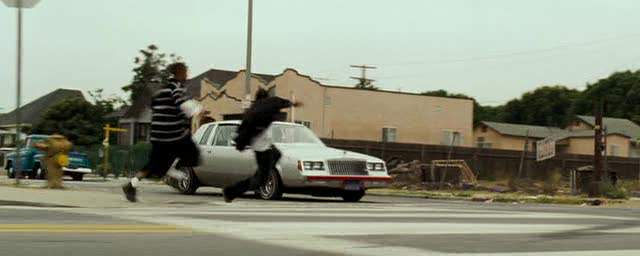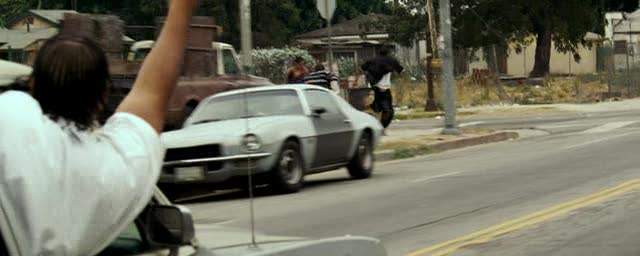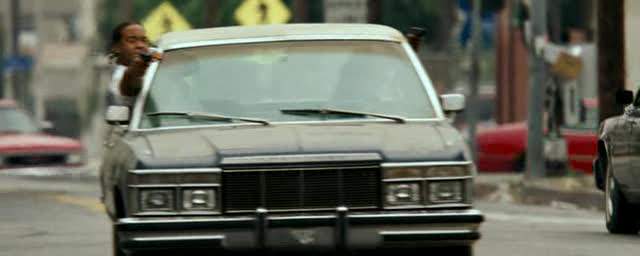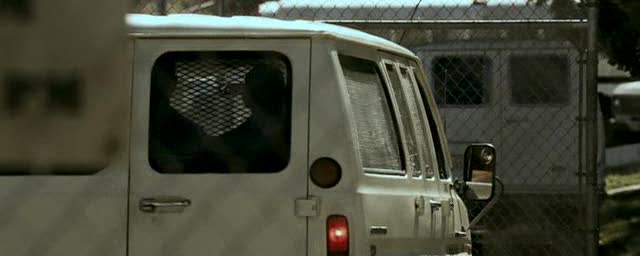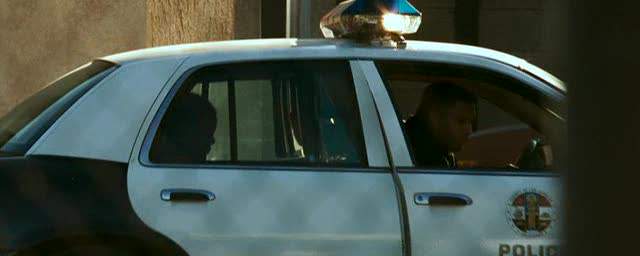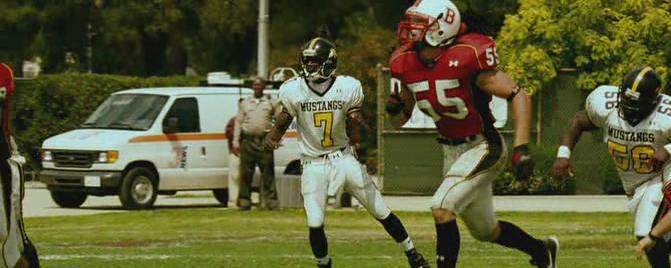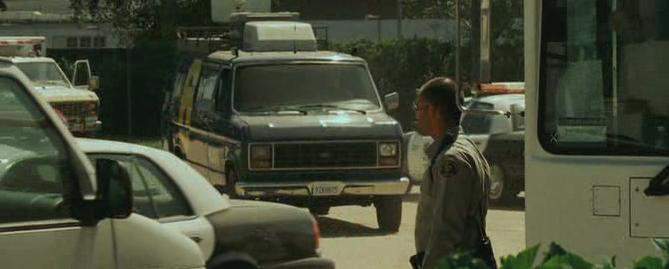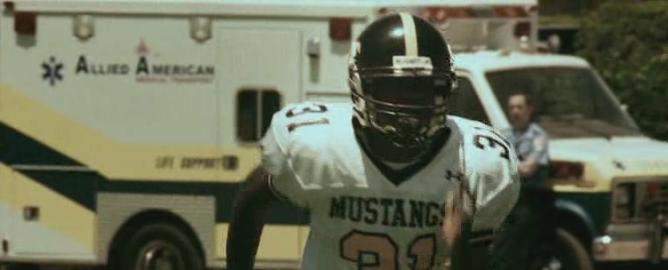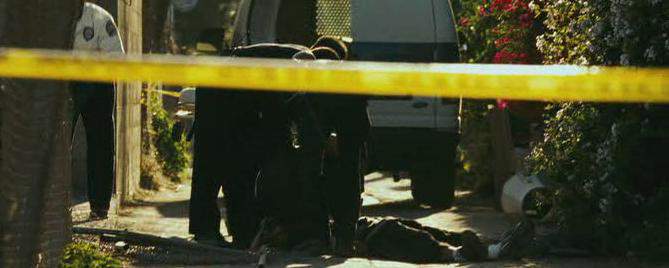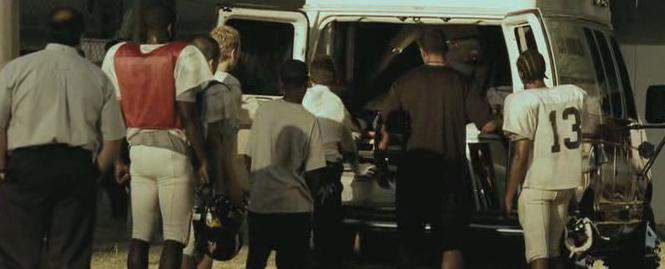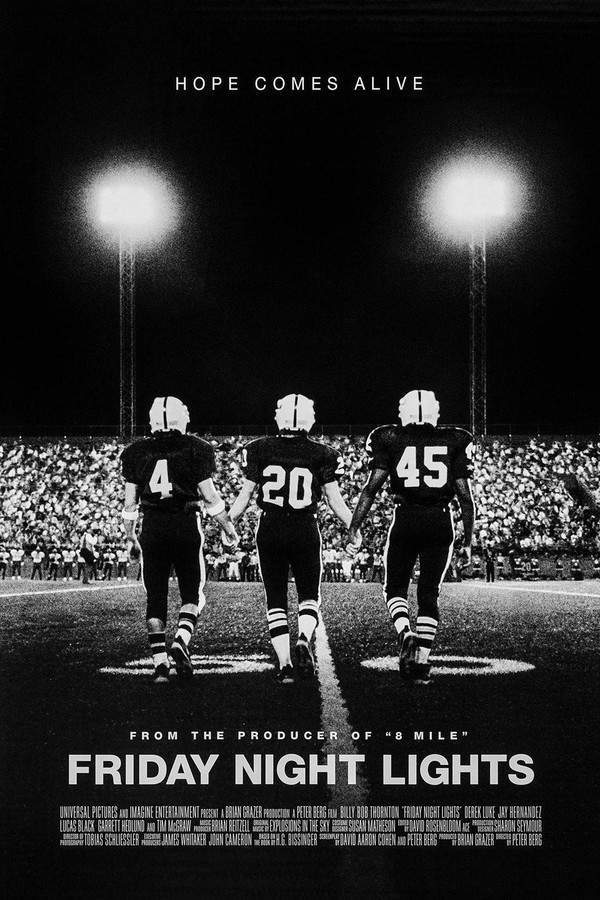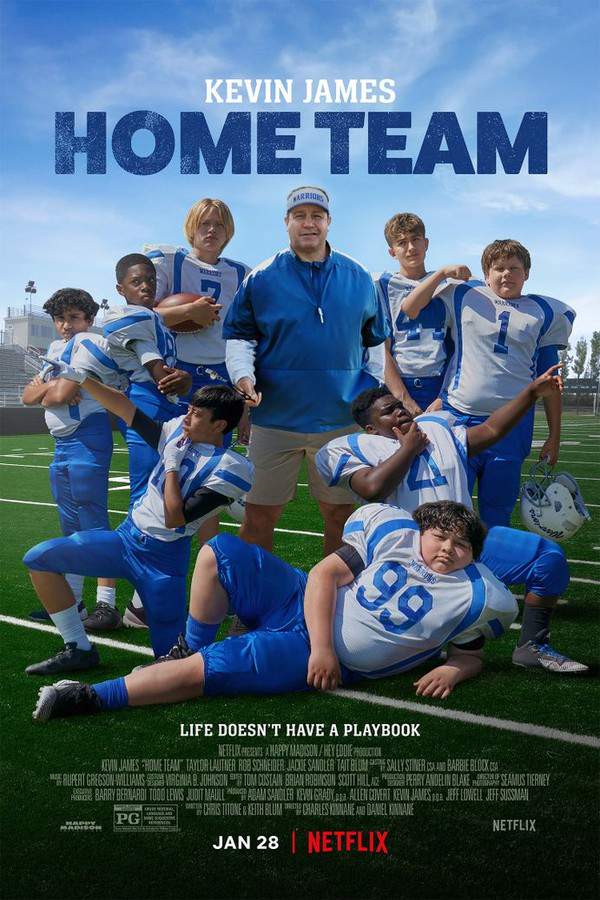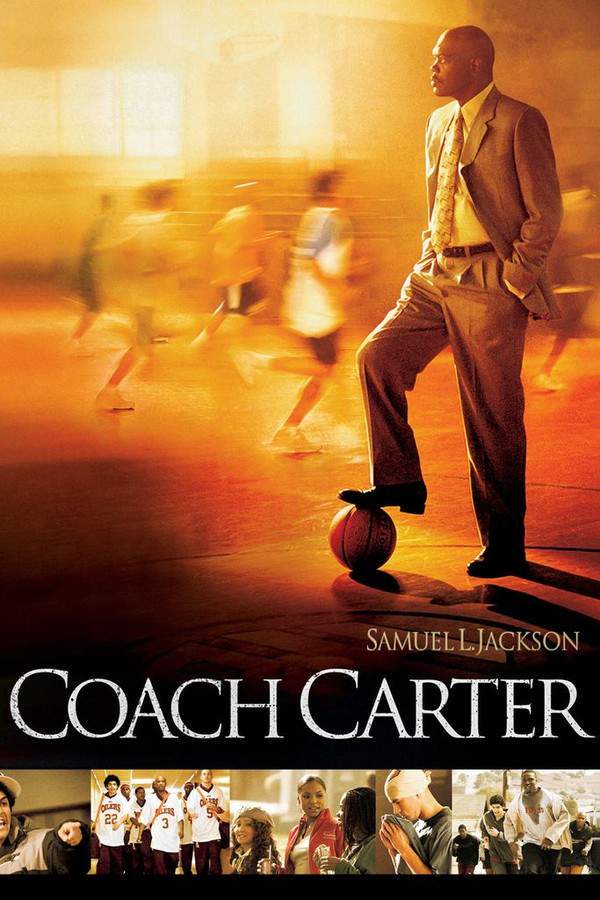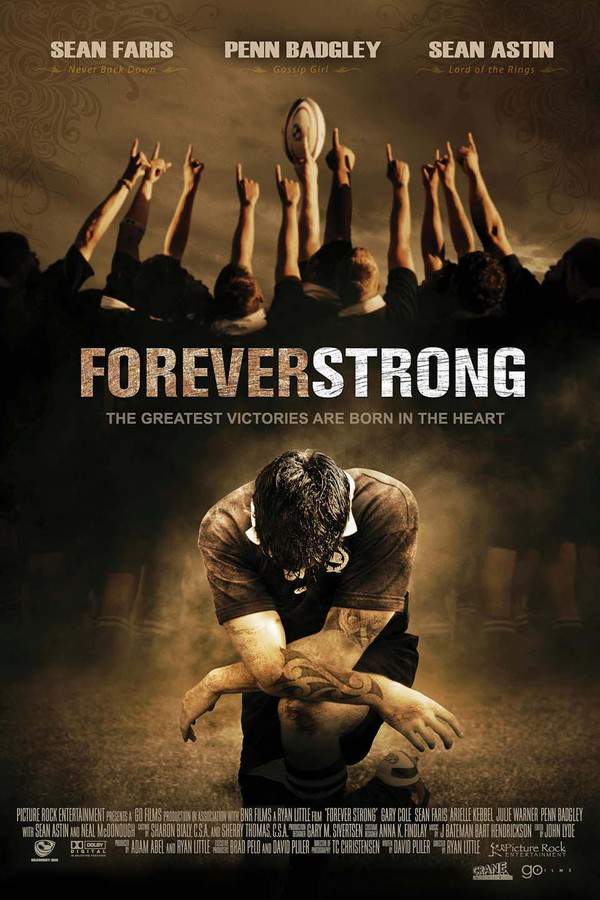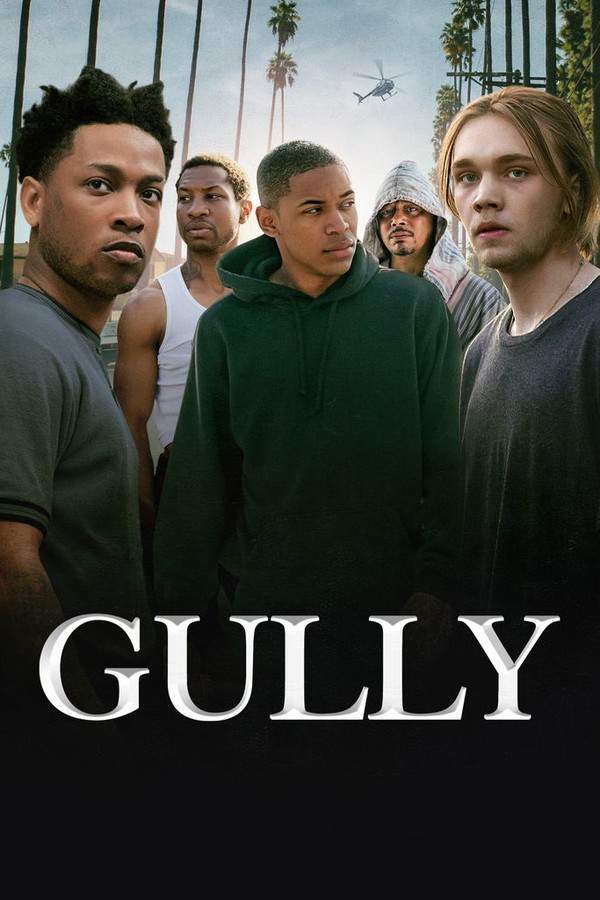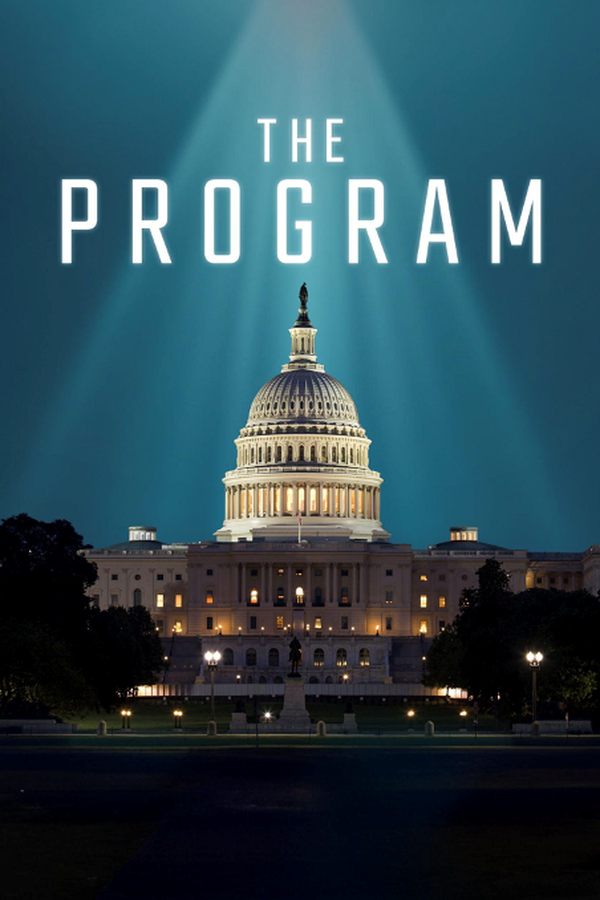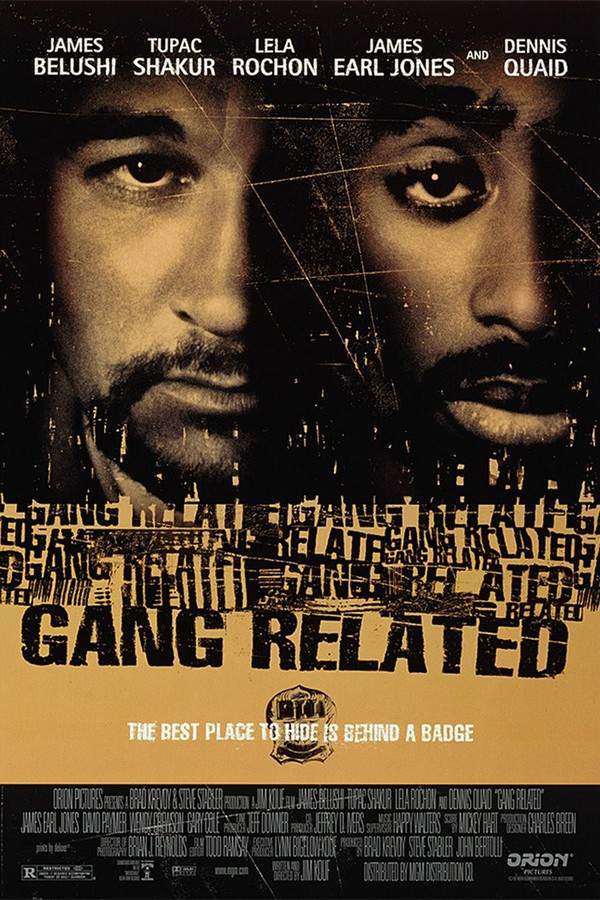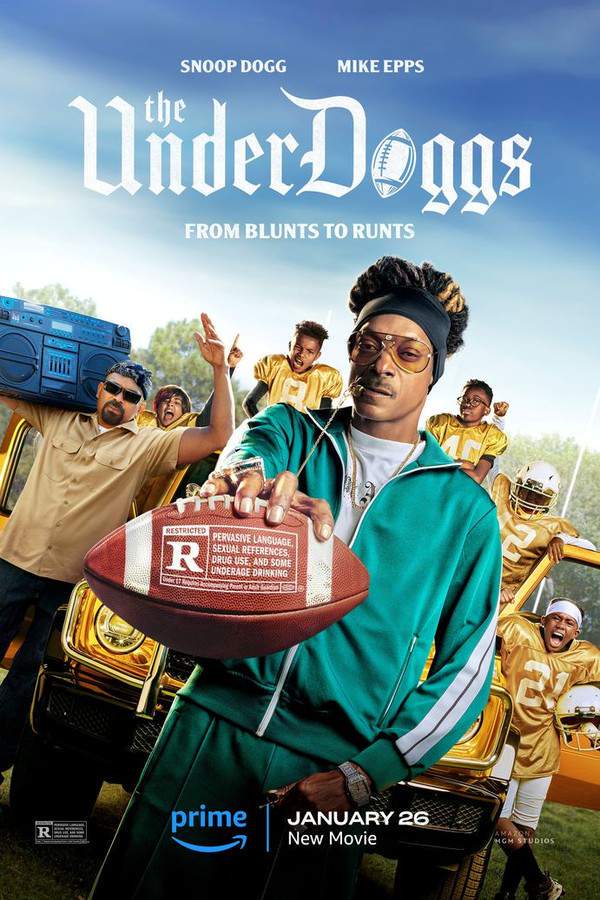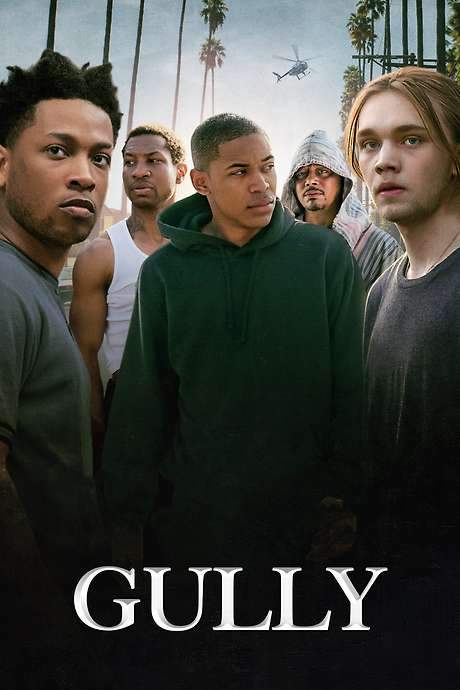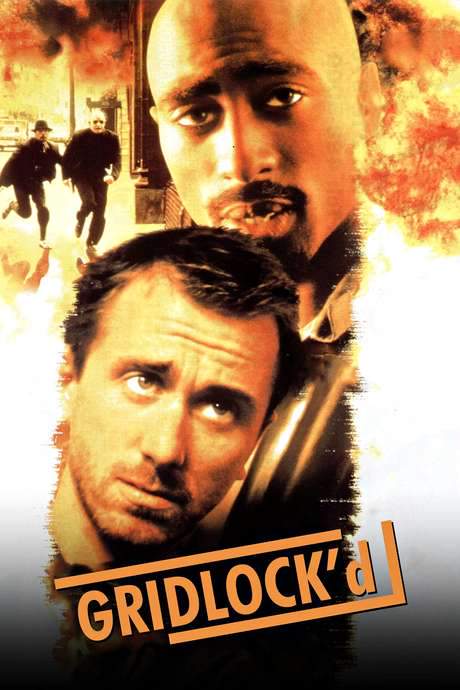Gridiron Gang 2006
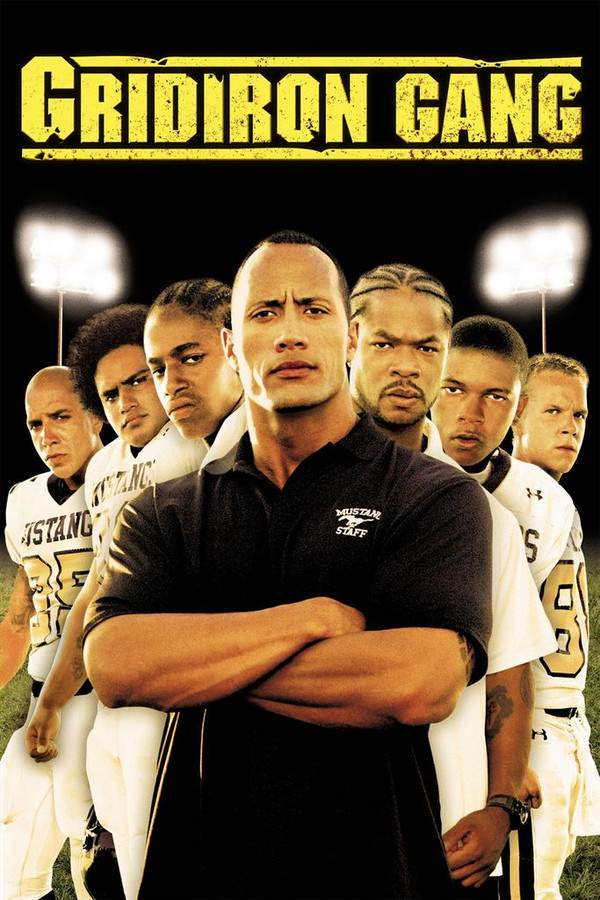
Sean Porter, a probation officer, takes on the challenge of turning a group of at-risk teens in juvenile detention into a football team in just four weeks. Faced with internal conflicts and personal struggles within the team, Porter utilizes a strict but caring approach to guide them. Through the demanding training and the thrill of competition, the young men learn crucial lessons about teamwork, self-respect, and taking responsibility for their actions, ultimately finding a path towards rehabilitation and a chance at a better future.
Does Gridiron Gang have end credit scenes?
Yes!
Gridiron Gang does have end credit scenes. Stay until the very end!
Meet the Full Cast and Actors of Gridiron Gang
Explore the complete cast of Gridiron Gang, including both lead and supporting actors. Learn who plays each character, discover their past roles and achievements, and find out what makes this ensemble cast stand out in the world of film and television.
External Links and Streaming Options
Discover where to watch Gridiron Gang online, including streaming platforms, rental options, and official sources. Compare reviews, ratings, and in-depth movie information across sites like IMDb, TMDb, Wikipedia or Rotten Tomatoes.
Ratings and Reviews for Gridiron Gang
See how Gridiron Gang is rated across major platforms like IMDb, Metacritic, and TMDb. Compare audience scores and critic reviews to understand where Gridiron Gang stands among top-rated movies in its genre.

52
Metascore
6.4
User Score


44%
TOMATOMETER

81%
User Score

70
%
User Score
Take the Ultimate Gridiron Gang Movie Quiz
Challenge your knowledge of Gridiron Gang with this fun and interactive movie quiz. Test yourself on key plot points, iconic characters, hidden details, and memorable moments to see how well you really know the film.
Gridiron Gang Quiz: Test your knowledge about the inspirational story of the Kilpatrick Mustangs and their journey to redemption.
Who is the main character in Gridiron Gang?
Sean Porter
Willie Weathers
Kelvin Owens
Leon
Show hint
Full Plot Summary and Ending Explained for Gridiron Gang
Read the complete plot summary of Gridiron Gang, including all major events, twists, and the full ending explained in detail. Explore key characters, themes, hidden meanings, and everything you need to understand the story from beginning to end.
Sean Porter, a dedicated corrections officer at Kilpatrick Detention Center in Los Angeles, is deeply disheartened by the sight of his young charges falling into the same cycles of desperation and hopelessness as they return to society. Witnessing the grim realities associated with street gangs and drug trafficking has taken a toll on him, igniting a passion to change their fate. In a bold move to foster discipline, accountability, and a sense of belonging among these troubled youths, Porter establishes a football team within the detention center.
With a discerning eye, Porter selects a group of potential players, inviting them to join him for practice the next day to build a sense of teamwork. As the Kilpatrick Mustangs take the field, he asserts that his method is the only path to success. > “You’re all losers right now,” he confidently states, “but if you accept this challenge and stick with the program, I guarantee you’ll emerge victorious in the end.”
As the team starts to come together, tensions rise between two of the players: Willie Weathers, a member of the notorious 88 gang, and Kelvin Owens, who represents the rival 95 gang. Their animosity is intense, yet the program’s influence proves to be stronger than their hostilities. In their first match against the formidable Barrington Panthers, a promising start quickly fades as they suffer a heavy 38-point defeat.
After enduring an initial rough patch with two losses, the Mustangs begin to find their rhythm, putting aside their differences in pursuit of a shared goal. A significant moment arises when Kelvin executes a crucial block that allows Willie to score a touchdown, fostering newfound respect between the former rivals.
As the season progresses, the Mustangs’ impressive turnaround leads them to the playoffs, garnering heightened media attention and community support. However, just when it seems everything is aligning, Willie’s past resurfaces with the unexpected appearance of Free, a fellow member of the 88 gang. Free’s aggressive approach towards Kelvin is met with Willie’s protective action, where he tackles Free to shield his teammate from harm. This shocking betrayal confuses Free, who cannot understand why Willie, once a loyal gang member, now defends his rival.
The chaotic scene escalates as authorities respond to Free’s outburst, which tragically culminates in his death amid a violent encounter. This devastating event leaves Kelvin grappling with its impact, while Willie faces his own emotional turmoil regarding Free’s demise, resulting in a violent clash with another inmate who criticizes him for losing his “brother,” leading to his isolation in solitary confinement.
In light of growing concerns about potential gang violence during the upcoming playoff game, Coach Porter passionately advocates for football as a means to create positive connections and an escape from harsh realities. However, his boss’s decision to assign police patrols at the event only amplifies the community’s anxieties surrounding gang chaos.
During the playoff game against Barrington, the Mustangs find themselves down 14-0 at halftime. Fueled by Willie’s spirited rallying speech, they make a remarkable comeback, clinching victory in a dramatic finish. Though they ultimately fall short in the championship game, their commendable effort garners respect and admiration.
As time passes, many of the Mustangs are making significant strides outside the detention center. Willie thrives at a prestigious boarding school; Kelvin proudly joins Washington High’s football team; Kenny pursues his education in Redondo Beach, and Junior lands a job with a furniture company. Leon also excels in Dorsey High’s football program.
Yet, not every teammate finds success: Miguel and Donald fall back into gang life, now incarcerated in California youth authority prisons, while Bug tragically loses his life to gun violence in Compton. Nevertheless, an impressive 24 of the original Mustangs continue their education, three are employed, and only five revert to old habits.
As the credits roll, the screen transitions to footage from the 1993 documentary “Gridiron Gang,” serving as a poignant reminder that hope for redemption and renewal persists, even amidst the darkest challenges.
Uncover the Details: Timeline, Characters, Themes, and Beyond!

Coming soon on iOS and Android
The Plot Explained Mobile App
From blockbusters to hidden gems — dive into movie stories anytime, anywhere. Save your favorites, discover plots faster, and never miss a twist again.
Sign up to be the first to know when we launch. Your email stays private — always.
Watch Trailers, Clips & Behind-the-Scenes for Gridiron Gang
Watch official trailers, exclusive clips, cast interviews, and behind-the-scenes footage from Gridiron Gang. Dive deeper into the making of the film, its standout moments, and key production insights.
Cars Featured in Gridiron Gang
Explore all cars featured in Gridiron Gang, including their makes, models, scenes they appear in, and their significance to the plot. A must-read for car enthusiasts and movie buffs alike.
Gridiron Gang Themes and Keywords
Discover the central themes, ideas, and keywords that define the movie’s story, tone, and message. Analyze the film’s deeper meanings, genre influences, and recurring concepts.
Gridiron Gang Other Names and Titles
Explore the various alternative titles, translations, and other names used for Gridiron Gang across different regions and languages. Understand how the film is marketed and recognized worldwide.
Similar Movies To Gridiron Gang You Should Know About
Browse a curated list of movies similar in genre, tone, characters, or story structure. Discover new titles like the one you're watching, perfect for fans of related plots, vibes, or cinematic styles.
Quick Links: Summary, Cast, Ratings, More

What's After the Movie?
Not sure whether to stay after the credits? Find out!
Explore Our Movie Platform
New Movie Releases (2025)
Famous Movie Actors
Top Film Production Studios
Movie Plot Summaries & Endings
Major Movie Awards & Winners
Best Concert Films & Music Documentaries
Movie Collections and Curated Lists
© 2025 What's After the Movie. All rights reserved.


















